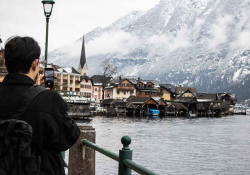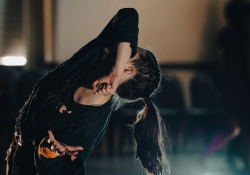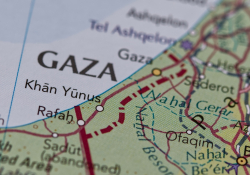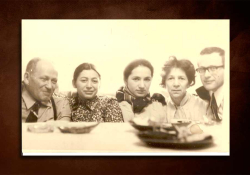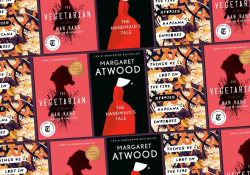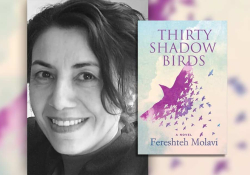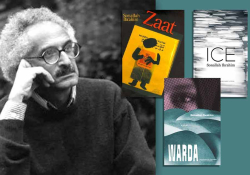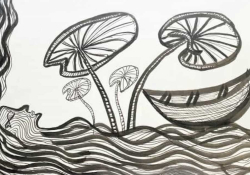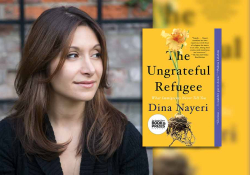My Alma Mater Is Auschwitz
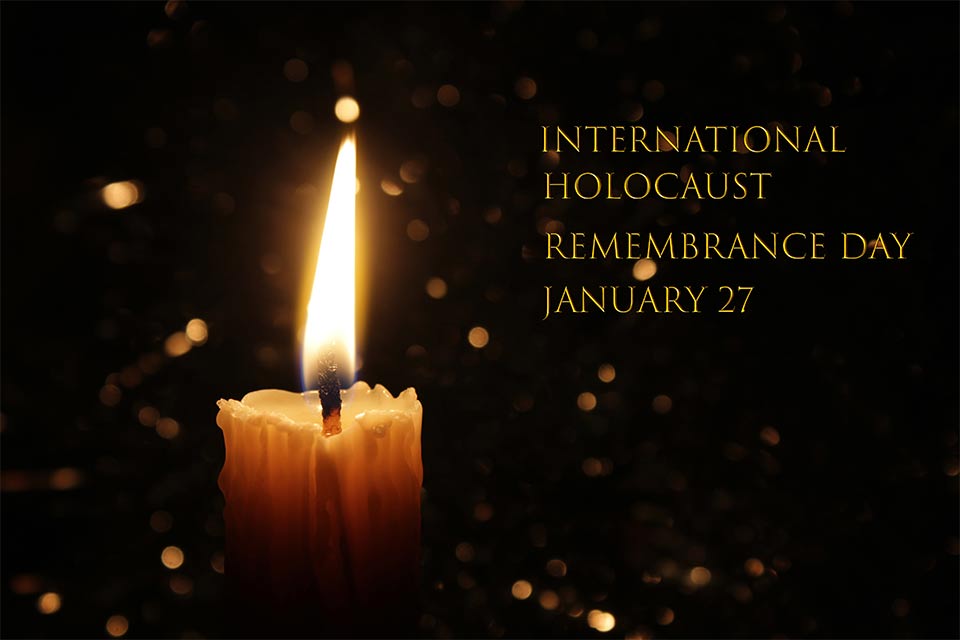
This somber but inventive essay was adapted from an address Edith Bruck gave in 2018, and as the world marks International Holocaust Remembrance Day on the eightieth anniversary of the liberation of Auschwitz on January 27, 2025, it’s a fitting meditation on the unorthodox education she received after she was deported as a teenager in Hungary. Bruck’s power as a writer lies in her ability to see the world for what it is but without anger or resignation.
As the poorest among the poor, with or without anti-Semitism and the race laws, I wouldn’t have been able to attend university. My alma mater is Auschwitz, a place that’s become the symbol of absolute evil among the 1,635 concentration camps that belonged to the ultracivilized Germany and other countries allied with or occupied by Hitler.
Auschwitz: the university where you learn everything. Above all, to know yourself. There, you learn anthropology, philosophy, history, psychology, faith, and religion. The value of life, the value of bread. But it also teaches the sorrow you feel when a blonde child spits on you.
There’s much to learn for the man who in slavery is defenseless and incapable of looking after himself. There’s much to learn for the woman who’s stronger and more resistant to the pain, shrewder and more capable of coming up with tricks to evade selection for the crematorium. The woman who learns to make herself invisible in order to gain another day of life.
You also learn the lingo of swear words. The range of behavior among the different social classes. Shame and pity for the guards, though the cold, the hunger, and the terror cloud your reason and don’t permit much feeling.
You learn to understand everything. You understand the dehumanizing of the deported who become Kapos. You understand and pity the companions willing to take on a miserable job in exchange for the chance to steal a piece of turnip from the bottom of the soup pot.
But you also discover light in the darkness. When, for example, a soldier gives you a warm potato, a tattered glove, when he leaves a bit of jelly in the mess tin he’s tossed you to wash, and when he asks you, “What’s your name?” It sounds like the voice of heaven. You’re no longer prisoner #11152. You exist!
You also discover light in the darkness.
And so, you begin to hope you’ll come out of that hell, and come out a better person because you won’t ever forget three things: that you’ll never be a racist, a fascist; you’ll never discriminate against anyone; and you’ll never be like your persecutors.
I, who graduated with honors from the University of Evil, I learned about goodness. From the cesspit, I extracted gold. That’s why I’m especially struck when I read about a woman in Padova who upon leaving church told a journalist, “Let all the migrants drown.” Or about the man from Lodi who calls children without access to school lunches “fleas on dogs.”
I’m frightened by the blind terrorism, the fanaticism, the dark wind that blows once again through Europe and not only Europe. I ask myself why it is that man never learns anything from his own crimes and keeps committing them. Why he allows himself to be seduced by nationalism and racism and hatred and egotism. He builds walls, barbed-wire fences. He has no sympathy for those who are fleeing war, famine, violence, and torture. Rather than face the past, man denies his own complicity, his own responsibility for what happened yesterday, what’s happening today, and what could happen again tomorrow.
I’m frightened by the blind terrorism, the fanaticism, the dark wind that blows once again through Europe and not only Europe.
What was the purpose, then, of the gulags and death camps?
You cannot heal from Auschwitz by writing or talking about it. But it is an experience that must be told, especially to young people, for their present and their future. Because all of it concerns everyone. Communication isn’t pressing a key but recognizing, respecting every human being, regardless of religion or color. If we still want to call ourselves human beings.
History is woven with lies and distortion; with wars and profits, it’s dominated by the ambition for power and the exploitation of the weakest. The role of witness is tiring and uncomfortable. Recounting, writing, and reliving the past is a weighty task. But it’s always worth it because someone is listening.
The Italian language, which I adopted when I arrived in Italy in 1954, has been my freedom and salvation. It’s the armor that protects me from the pain my native tongue still stirs up for me. If I write “bread” in Hungarian, I immediately see my mother by the oven, with her apron forever covered in flour. I see her face flushed from effort and joy over the five loaves freshly baked for her many children. Italian bread, on the other hand, is simply what comes from the bakery.
The Italian language is my home, it’s my country, and this language of mine, adopted as an adult and beloved as though it were a child, I’ve helped it grow and it’s allowed me to grow and recount the unspeakable.
In moments of dismay, I ask myself if there’s any use to writing, shouting, bearing witness, warning people’s consciences. Then I tell myself, “Work, walk, believe, love as long as there’s a single reader, a single other being who understands each person’s right to dignity. There aren’t lesser men. There are only lesser ideologies that lead to barbarity.”
Rome, Italy
Editorial note: “La mia università si chiama Auschwitz,” copyright © 2018 by Edith Bruck. English translation copyright © 2025 by Jeanne Bonner. This essay is a translation of a speech Bruck gave when the Rome Tre University conferred an honorary doctorate upon her in 2018. Ms. Bruck has given me permission to translate and publish it.



